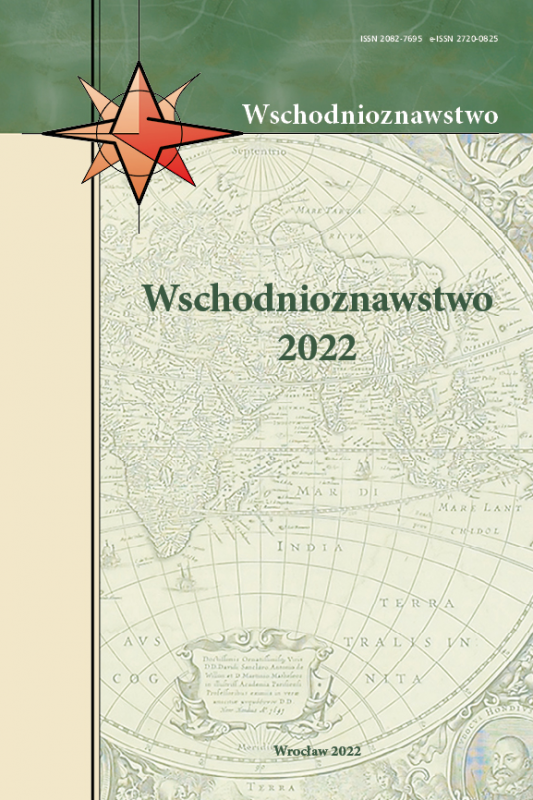Три десятилетия суверенитета Республики Беларусь (1991–2021): точка невозврата не пройдена
Three decades of sovereignty of the Republic of Belarus (1991–2021): the point of no return not passed
Author(s): Victor ShadurskiSubject(s): Politics / Political Sciences, Politics, Recent History (1900 till today), Transformation Period (1990 - 2010)
Published by: Wydawnictwo Uniwersytetu Jagiellońskiego
Keywords: Republic of Belarus; parliamentary republic; authoritarianism; civil society; foreign policy; Russia; European Union
Summary/Abstract: W prezentowanym artykule przedstawiono zarys analizy rozwoju Białorusi po uzyskaniu suwerenności państwowej. Po ostatecznym rozpadzie ZSRR (XII 1991) Białoruś miała możliwość samodzielnego kształtowania swojej polityki wewnętrznej i zagranicznej. Młode państwo, zyskując szybkie międzynarodowe uznanie, zaczęło realizować zasadę trójpodziału władzy, angażować aktywnych obywateli w dyskusję na temat perspektyw rozwoju kraju.Autor podejmuje próbę wyjaśnienia przyczyn transformacji Białorusi z republiki parlamentarnej w państwo autorytarne. W przedstawionych rozważaniach stwierdza się, że stopniowe wprowadzanie autorytarnych metod rządzenia na początkowym etapie było popierane przez znaczną część społeczeństwa. W warunkach niskiej kultury politycznej w kraju, niepokojące procesy autorytaryzmu uznawane były za czasowe trudności etapu przejściowego od spadku totalitarnego do demokracji. Ustanowienie na Białorusi dyktatury osobistej doprowadziło do stopniowej degradacji wiodących struktur państwowych.Spośród przyczyn chęci przywrócenia sowieckiego ustroju przez liczną część społeczeństwa białoruskiego wyróżnić należy słabe zaangażowanie Białorusinów w odbudowę państwa narodowego, podziały tożsamościowe, brak strategii jednoczącej społeczeństwo przed współczesnymi wyzwaniami.W artykule postawiono tezę, że negatywną rolę w rozwoju Białorusi odgrywały rosyjskie elity polityczne, które w rzeczywistości nie uznawały suwerenności państwa białoruskiego, negowały tożsamość Białorusinów, języka białoruskiego, kultury i narracje historyczne. Prosowieckie i prorosyjskie poglądy Łukaszenki zachęcały Kreml do ustanowienia kontroli nad państwem białoruskim. W lutym 2022 r. Moskwa wykorzystała terytorium Białorusi do inwazji na Ukrainę, kwestionując niepodległość państwa ościennego.Masowe protesty na Białorusi przeciwko rażącemu fałszowaniu wyborów prezydenckich (VIII 2020) pokazały, że białoruskie społeczeństwo odrzuca autorytarny reżim, a także prowadzoną dotychczas politykę wewnętrzną i zagraniczną. Władza Łukaszenki dążąc do wyjścia z głębokiego kryzysu, położyła główny nacisk na brutalne represje wobec protestujących obywateli. Obecna strategia władz naraża państwo białoruskie na całkowitą utratę suwerenności. [The presented publication provides a brief analysis of the development of Belarus after the gaining of state sovereignty. After the final collapse of the USSR (XII 1991), Belarus had the opportunity to independently shape its domestic and foreign policy. The young state, having received rapid international recognition, began to put into practice the division of branches of government, to involve active citizens in a discussion about the prospects for the the country.The author tries to find out the reasons for the transformation of Belarus from a parliamentary republic to an authoritarian state that began after the first presidential elections (VII 1994). It is argued that this transition at the initial stage enjoyed the support of the majority of the population, who, in conditions of low political culture, associated the socio-economic difficulties of the transition stage with democratic transformations. The establishment of a personal dictatorship in Belarus has led to the gradual degradation of the main state structures.The researcher sees the main reason for the desire of many Belarusians to return to the Soviet order in the incompleteness of the Belarusian nation-building, in the split of society into several identity groups, in the absence of a collective strategy for finding answers to the challenges of the time.The article emphasizes the thesis that the Russian leadership played a negative role in the development of Belarus, which in practice did not recognize the independence of the post-Soviet state, denied the uniqueness of the Belarusian language, culture and historical narratives. Lukashenko’s pro-Soviet and pro-Russian views were supported by the Kremlin, which, under the guise of various support, sought to establish control over the Belarusian regime. In February 2022, Moscow used the territory of Belarus to invade Ukraine, greatly questioning the sovereignty of the neighboring country.Mass protests in Belarus against the gross falsification of the presidential elections (VIII 2020) demonstrated that the Belarusian society rejects the authoritarian regime, its domestic and foreign policy. The regime, in its actions to get out of the deep crisis, placed the main emphasis on brutal repression against dissent. This makes the future of the Belarusian state poorly predictable, makes it dependent on many internal and external circumstances.]
Journal: Wschodnioznawstwo
- Issue Year: 2022
- Issue No: 16
- Page Range: 395-423
- Page Count: 29
- Language: Russian

